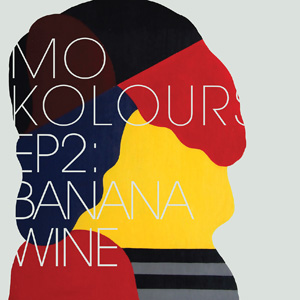It’s amazing how the most ornate sounds can emanate from such startling simplicity. Keyboards, a few scattered records, and a glowing resolve to create, even if the artist in question is somewhat self-effacing. But that’s the existence of Mo Kolours, a half-Mauritian singer and percussionist whose lo-fi brand of Afro-Caribbean dub is just as unassuming as its maker. “I’m a percussionist, vocalist, kinda wanna-be producer, and bit of a music fiend,” Mo told OkayAfrica in a 2011 interview. “I’ve been making music for years now trying to find a sound, find a way.” In some ways, one can hear those glaring uncertainties in the music. On “Biddies,” a standout from last year’s EP1: Drum Talking, Mo hid his drowsy baritone behind filtered African chants and hypnotic bass drums. Elsewhere, on “Dead of Night,” he sang with the shy nervousness of a child performing his first church solo. Yet it all works somehow. The lyrics aren’t particularly thought provoking and the beats aren’t that structured. Maybe that’s why his music is so fascinating. It’s artistic freedom that doesn’t drift too far afield, dripping with esoteric, reclusive appeal.
That certainly makes Mo’s new recording, EP2: Banana Wine, a remarkable listen for those seeking the alternative, even if its 25-minute runtime goes by a little too quickly (if you’re like me, you’ll play Drum Talking in succession with this one to create a full LP). The mixes are downright muddy and crackling vinyl litters the background. On “Twelve,” for instance, Mo becomes the instrument, adding whishes, mouth clicks and whistles to the organ-laced percussion. And remember what I said about the simplistic words? “People keep on wonderin’ how we’re gonna get by,” Mo repeats throughout the song. Then there’s the exciting “Mini Culcha,” a break beat so energetic that it nearly runs off the rails. Instead, Mo centers it on dripping electric piano keys, vocal samples and hand claps. “Banana Wine,” with its shakers and atmospheric bells, is a drunken reggae tune as potent as the East African liqueur it celebrates.
While African fusions aren’t new, there’s an underlying sincerity to Mo’s inspirational blend. The music feels light and enveloping, brimming with early-‘80s hip-hop allure and hazy tribal magnetism. In a trailer announcing this EP, Mo can be seen dancing and composing music, although the camera never truly captures his face. There are sporadic drum taps, the random patter of piano keys, and so on. Perhaps done on purpose, Mo seems content as a vessel through which sounds can exist, his humble “aw shucks” persona an extension of his artistic effervescence. So it’s no wonder why Banana Wine is so captivating. It’s straightforward and danceable, yet intriguing and peculiar. It doesn’t seem tailored for mass adoration, but there’s something quite pervasive about the results. Through it all, it’s just Mo and the music. He probably wants it that way.

